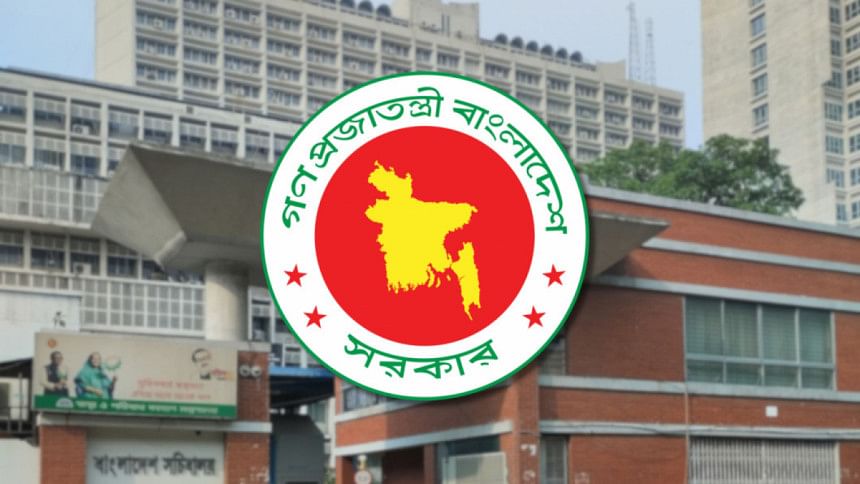Govt indecision stalls DC transfer in 30 districts
Despite the next election being planned for February 2026, the government is yet to appoint new deputy commissioners (DCs) in around half of all districts due to the public administration ministry’s indecision.
The DCs serve as returning officers during polls, and their timely appointment is essential for mobilising field administration and ensuring a conducive atmosphere.
Generally, deputy secretaries serve as DCs.
According to the Cabinet Division, 26 of the currently appointed 63 DCs are from the 24th batch of the civil service, 25 from the 25th batch, and 12 from the 27th batch.
However, the government promoted 21 DCs — all from the 24th batch — to joint secretaries on March 23. Officers at this level are typically not allowed to continue serving as DCs. The remaining five are awaiting transfers for various reasons. As a result, all 26 DCs from the batch must be replaced, according to officials.
Additionally, several current DCs face various allegations, and their replacements too have not been finalised.
Officials warned that election preparations could be delayed if the DCs are not appointed in time, raising concerns over the government’s commitment to ensuring a free and fair election.
A senior official, who has served as both a divisional commissioner and a DC, said deputy commissioners should ideally be appointed at least nine to 10 months before a parliamentary election to ensure effective administration.
“Early appointment gives them [the DCs] sufficient time to prepare for the enormous challenges ahead,” he said, preferring anonymity.
“This election is expected to be particularly challenging, and ideally, the DCs who need to be replaced should have been transferred by June.”
The official noted that it typically takes a DC about six months to become familiar with a district’s social, political, cultural, and geographical dynamics.
“In addition, it takes another three months [for the authorities concerned] to evaluate whether the newly appointed DCs can perform their duties impartially.”
A joint secretary at the Cabinet Division, also speaking on condition of anonymity, said, “If DCs are appointed well ahead of the polls, the government will have enough time to evaluate their performance. If any changes are needed, there would still be room to make adjustments six months before the election.”
Sources at the Chief Adviser’s Office said a section of government officials was initially reluctant to appoint DCs from the 28th batch for the upcoming election period, preferring officers from the 25th and 27th batches to manage field administration.
There have already been at least four rounds of DC appointments from these two batches under both the previous and current governments. But after evaluations, it was found that a significant number of officers lacked competency. As a result, the decision was made to prepare a DC fit list from among 160 officers of the 28th batch.
On June 21, 37 officers took oral tests, and the remaining candidates are expected to complete the process by July. New DC appointments are likely in August, according to officials familiar with the proceedings.
The responsibility for transfers and postings of DCs and other senior officials lies with a four-member public administration advisory committee led by the finance adviser, though the chief adviser makes the final decision on appointments.
Sources said the committee has not been meeting frequently enough to process transfers and postings, causing delays.
According to a senior official, a list of 25 officers from the current DC fit list was submitted to the committee, but no decision has been made yet.
“The committee appears indecisive and reluctant, at least for now, to withdraw officers of the 24th BCS batch from field administration,” the official said, requesting anonymity.
Public administration expert Firoz Mia said the success or failure of the government during the election period will largely depend on field administration.
“Those who will serve as DCs during the polls should be appointed eight to nine months in advance so that their performance can be evaluated and weaknesses addressed.
“While no decision will ever be perfect, early appointments give the government time to replace any officer who proves problematic,” he told this newspaper.
Contacted, Mokhles Ur Rahman, senior secretary of the Public Administration Ministry, said, “We’re exercising extra caution in selecting officers as they will be responsible for conducting election duties. That’s why the process is taking longer.
“The previous government left the administration in such a state that we are now struggling to find competent officers… There have been instances where, after selecting someone for an important position, background checks revealed various issues with the officer. In some cases, we even had to cancel appointments right after making them.”
LondonGBDESK//



Comments are closed.